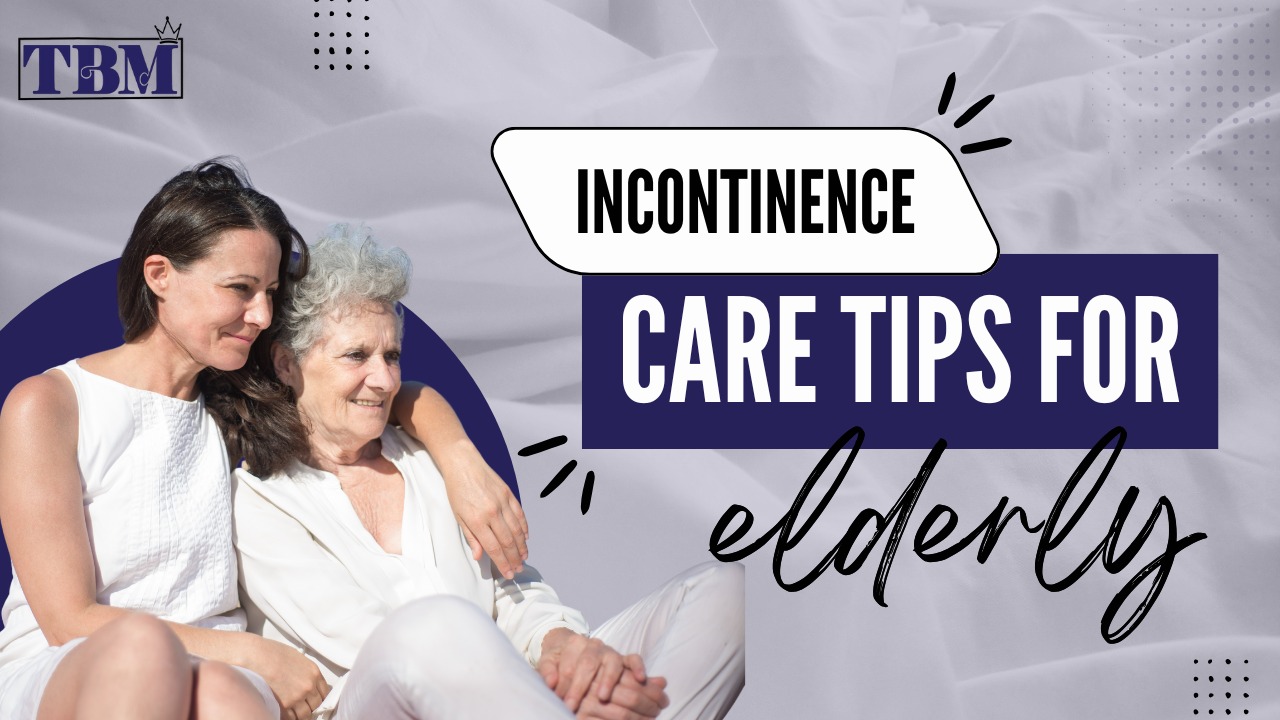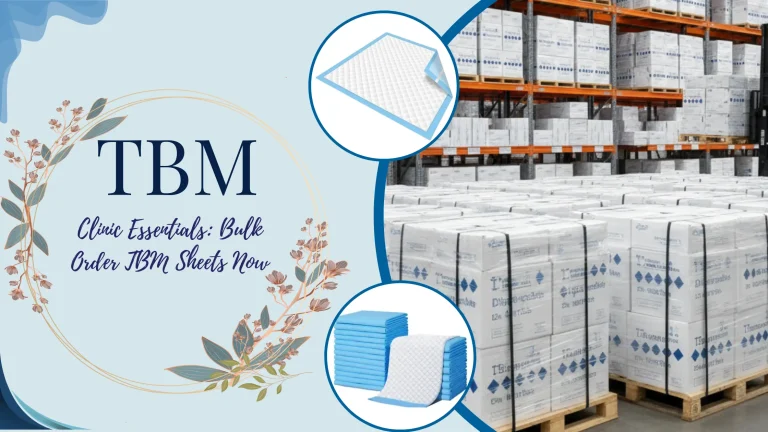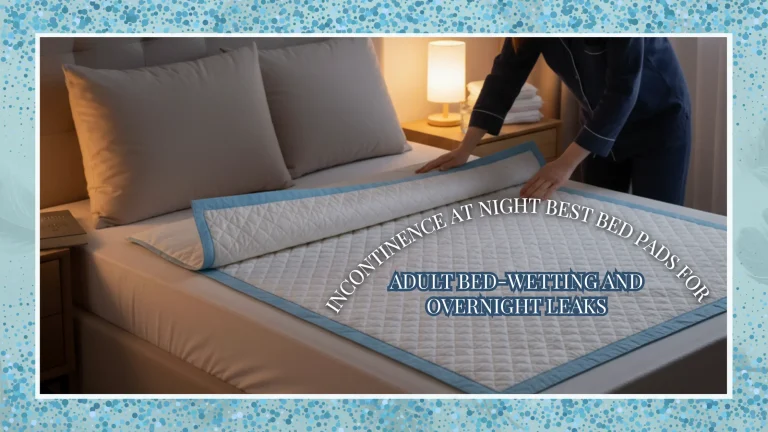Incontinence Care Tips for Elderly: Products and Strategies
As we grow older, our bodies go through many changes. One common issue that many elderly people face is incontinence. This means they may have trouble controlling their bladder or bowel movements. While it’s a sensitive topic, it’s important to talk about it openly and kindly. At TBM, we believe every senior deserves to live with comfort, respect, and dignity. That’s why we created this helpful and easy-to-understand guide for families and caregivers.
What Is Incontinence in Older People?
Incontinence is not a disease. It’s a symptom that shows something else might be happening in the body. It can happen for many reasons, such as:
- Weakened muscles in the bladder or pelvic area
- Nerve problems from conditions like Parkinson’s or Alzheimer’s
- Chronic illnesses like diabetes or stroke
- Side effects from medications like blood pressure or heart medicines
Sometimes, seniors may even have more than one cause at the same time. Understanding the reason helps in choosing the right care plan.
How Incontinence Affects Seniors
Incontinence can affect both physical health and emotional well-being. Some seniors may feel:
- Embarrassed or ashamed
- Worried about going out
- Sad or withdrawn from social life
- Fear of having an accident in public
Physically, if incontinence is not managed well, it can lead to:
- Skin rashes or irritation
- Infections in the skin or urinary tract
- Discomfort due to wetness and odor
That’s why proper care and support are so important.
Easy Incontinence Care Tips for Elderly
Here are some practical and easy-to-follow tips that can make a big difference in daily life:
1. Follow a Bathroom Routine
Try to help your loved one use the toilet every 2–3 hours. This is called timed toileting and it helps reduce the chances of accidents.
Also, encourage them to go right after meals or before bed. Setting a routine brings comfort and confidence.
2. Use Good Incontinence Products
Using the right products makes a huge difference in comfort, hygiene, and confidence. Look for:
- Adult diapers that fit well and don’t leak
- Absorbent pads for lighter leaks
- Waterproof bed protectors for night-time safety
- Gentle wipes and barrier creams to clean and protect the skin
At TBM, we offer a full range of safe, high-quality incontinence products. Explore our product range.
3. Drink Enough Water
Some people think drinking less water helps avoid leaks, but it actually makes things worse. Dehydration can lead to:
- Constipation (which puts pressure on the bladder)
- Irritated bladders
- Urinary tract infections
Encourage regular water intake during the day and reduce it a bit in the evening to avoid night-time trips.
4. Do Pelvic Floor Exercises
Kegel exercises help strengthen the muscles that control the bladder. These can be very useful for elderly people who can still move and exercise safely.
Start slowly with a few squeezes a day and build up. If unsure, ask a doctor or physiotherapist how to do them correctly.
5. Take Care of the Skin
Skin care is essential. Wet skin can become red, sore, or infected. To avoid this:
- Clean the skin gently after each accident
- Use pH-balanced cleansers instead of soap
- Apply barrier creams that block moisture and protect skin
You can read more here: MedlinePlus: Skin Care and Incontinence
6. Choose Easy Clothing
Simple clothing choices can make things easier for seniors and caregivers. Choose:
- Pants or skirts with elastic waistbands
- Clothing with Velcro or snaps instead of buttons or zippers
- Open-back gowns for seniors who need more assistance
These small changes save time and reduce stress during bathroom visits or changing times.
7. Be Kind and Supportive
Incontinence is not the person’s fault. It can be very emotional and embarrassing. As a caregiver or family member, your kindness matters.
- Speak gently and respectfully
- Encourage them, not shame them
- Maintain privacy during changes
- Ask them how they feel and include them in decisions
Remember: support builds trust, and trust makes care easier.
How Family and Caregivers Can Help
Caregiving is a big job, but small daily habits can help you and your loved one manage incontinence better.
- Keep a journal of bathroom times and accidents to find patterns
- Keep supplies organized and within easy reach
- Use discreet bins or bags to throw away used products
- Wear disposable gloves during changes for hygiene
- Take breaks and care for yourself to avoid burnout
If you’re feeling overwhelmed, reach out to a support group or other caregivers. You’re not alone.
When to Call the Doctor
Incontinence can be managed, but sometimes medical help is needed. Talk to a doctor if:
- Incontinence starts suddenly
- There is pain or burning during urination
- You notice blood in urine
- The person becomes confused or behaves differently
- The condition gets worse over time
Doctors may recommend:
- Medications to relax or strengthen the bladder
- Physical therapy
- Lifestyle changes like losing weight or changing diet
- In rare cases, surgery
Getting help early can improve the quality of life and prevent bigger problems.
Final Thoughts
Incontinence can be tough for both seniors and caregivers. But with the right approach, it can be managed well. The key is:
- Using the right products
- Building a routine
- Being gentle and respectful
- Focusing on dignity and comfort
At TBM, we’re here to support you with trusted incontinence care products and helpful advice.
💬 Need help finding the right product? Contact our team for guidance.
Incontinence care is not just about staying dry—it’s about helping our elders live with dignity.




